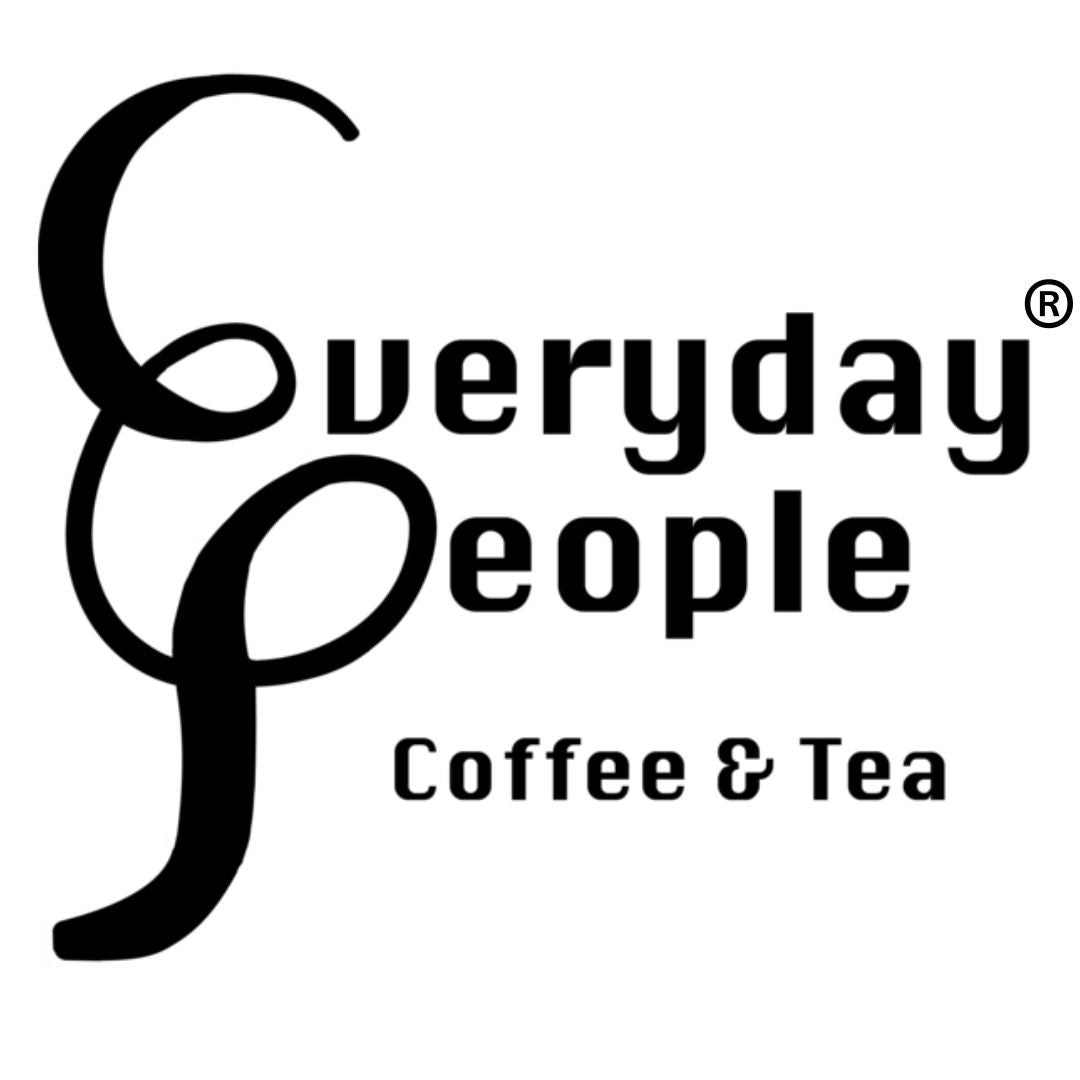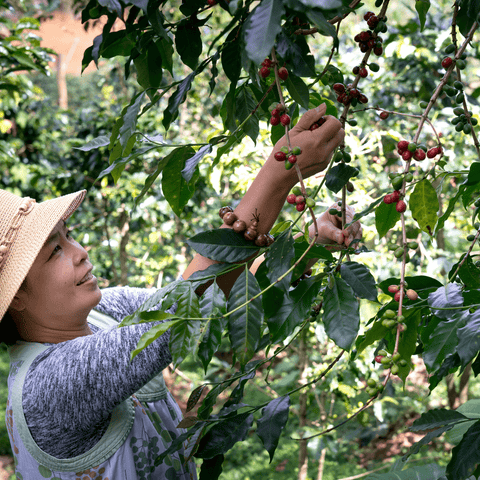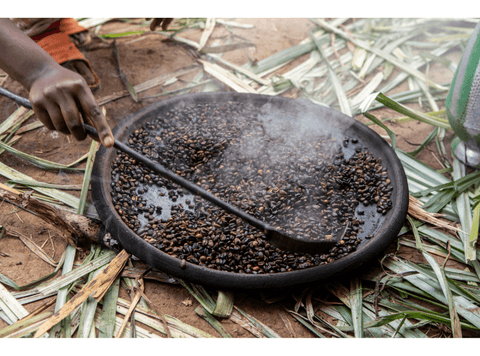The long history of the coffee industry tells a tale of oppression and abuse. It was built on the backs of others, and although certain practices have evolved since the industry’s early days, women in many of the primary coffee-producing countries are still used, abused, and denied equal rights to men. This inequality prevents women from growing their own businesses and supporting themselves, despite having long played key roles in the production of one of the world’s favorite beverages.
But education surrounding these issues is spreading as more and more women take a stand to finally change the face of the coffee industry.
Coffee’s Dark History
Coffee’s history is connected deeply to slavery and the early days of American colonies. Although over half of the USAnow drinks coffee on a daily basis, many of us have never learned its history.
The coffee plant is native to tropical regions of Africa and was first brought to the Americas by colonials in the 1700’s. Already a popular beverage in Europe, Asia, and the West Indies, colonials saw the potential profit to be made in the New World. Before long, African slaves were imported to Asia, the Caribbean and the Americas to work on coffee farms.
The power that early colonials held within the coffee industry established the system and the dynamic we still too often see today. Those who grew the plants and were most familiar with how to cultivate it were forced to labor in the fields. They were required to keep up with a growing demand for the beverage, yet never saw a penny of the profit. Many were also taken from their homelands and sent to work in fields across the sea, laboring and living in what is often described as atrocious conditions.
It wasn’t until President Obama’s signing of a bill in 2016 that the US finally made it illegal to purchase items that have been produced by forced and child labor in other countries. Until then, a loophole in the Tariff Act of 1930 allowed products derived from forced labor to be purchased by US companies so long as the demand for the product outweighed what American domestic production could supply. This bill was a notable step towards ending forced labor around the world, but it did not rectify the inequality, suppression, and abuse that workers in many high-demand industries such as coffee still endure.
A lack of awareness about the inequality within the coffee industry perpetuates an antiquated system. Turning a blind eye to wrongful practices, supports those practices.
Disparities Faced by Women in the Coffee Industry Today
Although slavery as it once occurred is no longer the primary issue, the power structure within the coffee industry remains largely unchanged. In some of the top coffee-producing countries, female coffee farmers still remain unable to use their knowledge and experience to advance the business. Whether they’re unable to attain the funds or the rights necessary to own land and make legal business decisions, many coffee farmers remain distanced from the profitable parts of the process.
Much of this has to do with gender inequality. Women have long been tilling soil and working as farmers, cultivating and perfecting their harvests to produce the specialty coffees so many of us enjoy. But although women make up around 70% of the labor within the coffee industry, few have had the means to build a business themselves. These women are the experts on the plants they tend, yet they are denied the rights to own land and to grow their work into an operation that could support their families and communities, simply because they are women.
Not only does gender inequality determine what women can’t do, but it sometimes also affects the work they can do. Sexual abuse, unequal pay to men, and longer workdays than men are common grievances of many women farmers in countries such as Nicaragua and Honduras. And if we move down the supply chain to take a look at opportunities of women in some of the leading coffee-consuming countries, we continue to see much of the same dynamic. Female baristas tend to make less than their male counterparts, and women are less likely to be in higher-paying, leadership roles.
Changing any deeply ingrained and long-standing dynamic begins with a few key steps. Change takes:
- Educating others of the issues
- Providing support and equal opportunities where they are lacking
- Changing the existing perspectives of both consumers and producers
- Increasing the visibility and influence of women in the coffee industry
- And creating a platform through which women can help each other grow.
The promising news is that the awareness surrounding the inequality within the coffee industry is gaining momentum. Some amazing women have become advocates and leaders, empowering other women in coffee and using their influence to educate and shine a light on the issues within the industry.
Changing the Face of the Coffee Industry
Women can be found in all roles within the coffee industry. From farmers, to roasters, to consultants and business owners, women have taken their place and are demanding equality within the field. Attaining the authority to make decisions such as purchasing and hiring allows women to change antiquated practices and restrictions, because changing the industry requires work in every stage of the supply chain.
Let’s take a look at some women in coffee who have made it their business to support women and to bring attention to the issues within the industry.
Phyllis Johnson
With over two decades of experience in the coffee industry, Phyllis Johnson is an educator and a driving force for equality. Johnson describes herself as “a student in the world”. She travels to farms and production facilities around the world, sharing stories of those she meets along the way to bring awareness to the issues she encounters.
Johnson has owned the specialty coffee company BD Imports since 1999. The company prioritizes:
- The empowerment of women
- Racial equity
- And sustainable practices.
BD Imports sells expertly roasted coffee made with a best-in-production process, and was recognized as the Responsible Business of the Year in 2018 by Radisson Hotel. But what really makes the company stand out is Johnson’s personal connection with the coffee farmers and producers. Inspired by a class she took in college about the inequality of countries around the world, Johnson personally travels to the farms from which she sources her products and uses her business as a platform to educate and empower others.
Johnson has worked closely with the International Women in Coffee Alliance (IWCA) and has written eye-opening pieces such as:
- Strong Black Coffee: Why Aren’t African-Americans More Prominent in the Coffee Industry?
- And an Open Letter to the US Coffee Industry on Racism
Phyllis Johnson is a passionate leader and educator who continues to use the platforms she has built to rectify the inequality within coffee.
Launtia Taylor
Despite unintentionally finding herself in coffee, Launtia Taylor has become a prominent voice within the industry.
She first discovered coffee through her consultant group. One of her clients was the company Probat Burns, which already had a long-standing history of being pioneers within coffee and of finding better solutions for producers around the world. Taylor became inspired get involved, and together they would donate roasting machines to growing coffee companies. Providing the necessary tools and training allowed small operations to build their own businesses and to support their communities.
Taylor believes in education and in truly understanding your product at every point of the supply chain. She has worked closely with the Specialty Coffee Association of America (SCAA) and with the IWCA, and continues to be an advocate and teacher within the industry.
Laura González
Getting people to take action by sharing the stories and struggles of others has never been easier. The internet made the world a much smaller place than it once was, and we are seeing an increase in uprisings against racial and gender inequality as our global awareness grows. Leaders like Laura González of Strong Women of Coffee have harnessed the power of the online space to create a greater connection among all of those involved in coffee. From farmers around the world to small town baristas, González features women from across the coffee industry to share their concerns and insights.
González uses both her website and an Instagram account to highlight the accomplishments of women in coffee. She emphasizes diversity and representation, building community by highlighting the many different faces of the industry. González hopes that showing others a behind-the-scenes glimpse of what goes into each cup of coffee will bring attention to farms and aid in creating equality between the men and women working them.
Equality Through Awareness
The history of the coffee industry is riddled with injustice and inequality. Although modern conveniences like drive-throughs have only increased the demand for these caffeinated beverages, much of what takes place in the process of creating each delicious variety is unknown to the masses. But knowledge is power, and women throughout the industry are taking a stand and educating others.
The journey to rectifying long-standing injustices is far reaching and unclear. Luckily, women in coffee are strong and bold, just like the darkest roast. By sharing their work and struggles, we are reminded that there are real people behind every delicious cup. And the more we humanize the oppressed, the more the consuming masses can begin to understand how necessary building equality within the coffee industry truly is.



